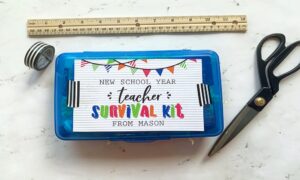
Every teen learns in their own method, and finding the correct support can make a meaningful change in how a learner with unique requirements grasps knowledge. A considerate mentor can bring out self-assurance through persistence and a method that suits the kid’s pace. Understanding their emotional needs helps build comfort while learning. The right approach helps children view learning as growth rather than a struggle. It motivates parents and learners to explore supportive guidance and resources, go here to discover more about nurturing a child’s confidence through effective tutoring.
Understanding Individual Learning Patterns
Each student has a special method of captivating knowledge, and children with dyslexia frequently need structured yet flexible direction. Observing how they react to reading and writing tasks helps determine the best approach. Tutors who adapt to the child’s pace make progress steadier. Knowing their preferred technique of learning strengthens engagement and understanding.
Qualities of a Best Instructor
A coach should have concern, endurance, and an understanding of how dyslexia affects learning. They should create lessons that build assurance through positive support. Encouraging curiosity instead of pressure allows natural improvement. Adaptability ensures the sessions remain engaging even during challenging phases.
Customized Teaching for Better Progress
Learning programs should match the child’s strengths rather than highlight their struggles. Custom lessons built around practical examples make reading and writing easier. Simple memory aids help children remember new concepts with comfort. Consistent progress checks support tutors refine lessons to suit changing requirements while maintaining stability.
- Personalized reading games improve attention and word recognition skills
- Using visual clues supports understanding of letter and sound patterns
- Repeating gentle reading exercises builds steady language growth
- Encouraging storytelling strengthens memory and expression skills
Encouraging Confidence in Every Session
Confidence grows when the child feels supported while learning. Gentle correction rather than harsh feedback keeps motivation alive. Small victories during lessons build faith in their own ability to learn. Tutors who focus on growth rather than errors nurture resilience. The goal is to help them feel proud of each improvement and eager to go here continue learning, which in turn enhances trust between tutor and student.
Collaborating with Family for Success
Families play a main role in supporting learning at home. When parents and instructors keep informed, progress becomes simpler to track. Children feel safe knowing everyone supports their development. Open communication allows the tutor to adjust teaching methods effectively to the child’s home environment and comfort zone.
Building Steady Growth and Self-Belief
As tutoring continues, children develop a steady rhythm of learning that aligns with their comfort level. Over time, their reading and ability improve naturally. Trainers who understand dyslexia attention not only on learning but also on emotional development. This combined focus leads to long-term confidence and curiosity toward learning.
A suitable guide can shape the journey from misperception to clarity. Families who take time to match the instructor with their child’s style encourage stronger growth. Each small achievement builds towards lasting success. Careful observation, open communication, and consistent support transform learning into something positive. By choosing guidance that suits personal needs, children find a path where knowledge grows freely and naturally.



